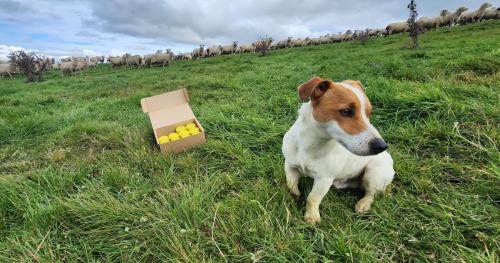Search results
Displaying 41 - 50 results of 414
- NewsSpotted something in our weekly e-diary newsletters and need to refer to it again? …

- Factsheet… age spread resilience parasites through flock facial eczema tolerance heritability 45 facial eczema significant disease parts new …
- News… Help shape the fight against facial eczema, Other Fieldays announcements …

- News… for farmers, Help shape the fight against facial eczema, Good genetic decisions just a click …


- Factsheet… project currently commercially available facial eczema pasture andor faecal spore counts blood … fact sheet endophyte update fact sheet facing facial eczema resource book mobile app …
- Resource book… welfare 25 internal parasites 25 flystrike 25 facial eczema 26 nitrate poisoning 26 pulpy kidney … other causes possible endophyte toxin facial eczema fusaria fungi trace elements …
- Page… study into the fungus that is known to cause Facial Eczema our Researchers discovered a new … out more: Read: Major step in understanding Facial eczema in livestock . Read: Scientists … hours to tackling FE through the Eliminating Facial Eczema Impacts programme, including …
- PageIf only we didn’t have to collect poo, but we do!!! Faecal egg counts can be done on individual samples or on a bulk sample (composite samples). Learn about when you might use one or the …
- PageIf you want the best information from your worm monitoring, make sure you collect fresh samples and store them correctly. Here’s a quick …